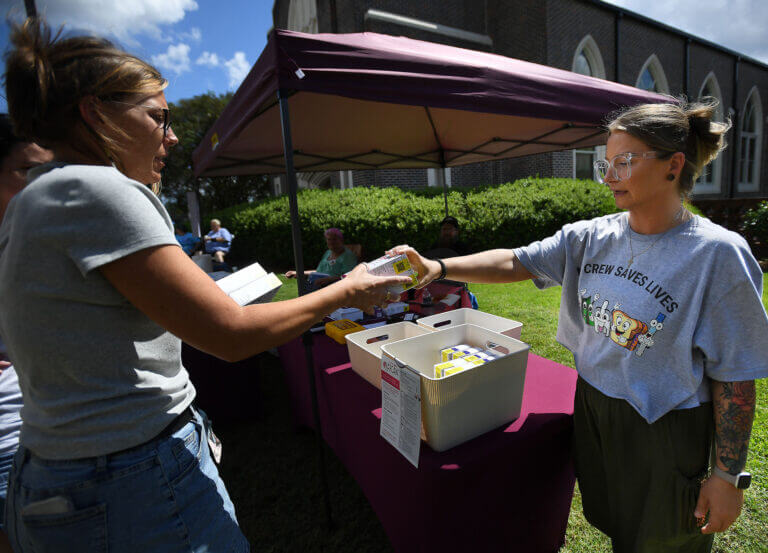
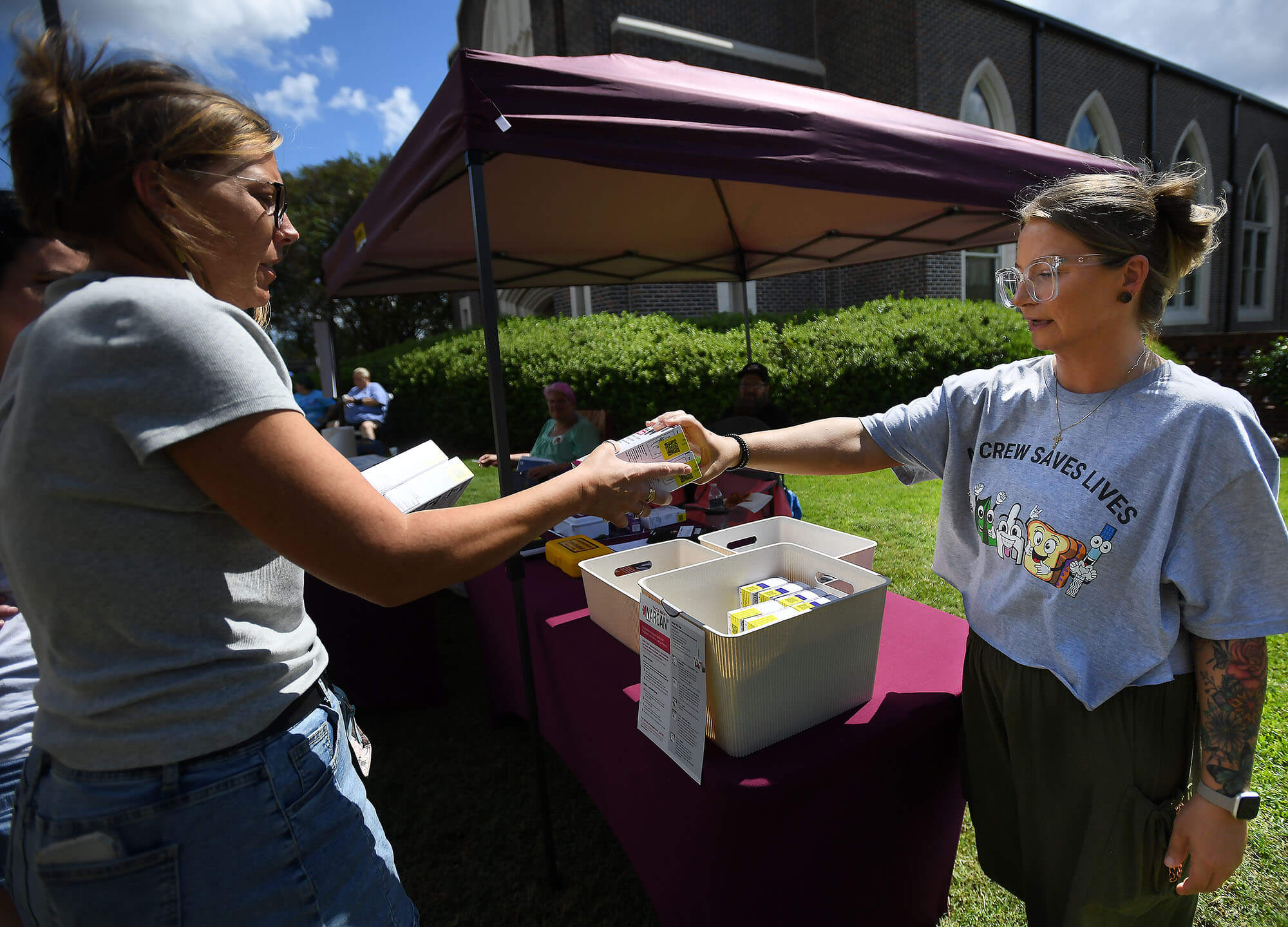
Jackson resident Britanny Denson says that in 2014, “I was left for dead among some other people.”
Now in long-term recovery, Denson on Thursday helped distribute naloxone, a life-saving medication that reverses opioid overdoses. She thinks that if the people she was around back then had had some doses available, they could’ve brought her breathing back.
“They might have rather used this than immorally just leaving me like I was at the time,” she said.
On Thursday, volunteers across Mississippi distributed free boxes of naloxone during Save a Life Day in an effort to combat stigma.
Denson is the operations coordinator for Grace House, a recovery residence for women in Hinds County. She is also a peer navigator for Mississippi Harm Reduction Initiative and one of the Hinds County organizers for Save a Life Day. She and a crew of volunteers handed out naloxone, fentanyl testing strips, free pizza and other resources outside of St Luke’s United Methodist Church in Jackson.
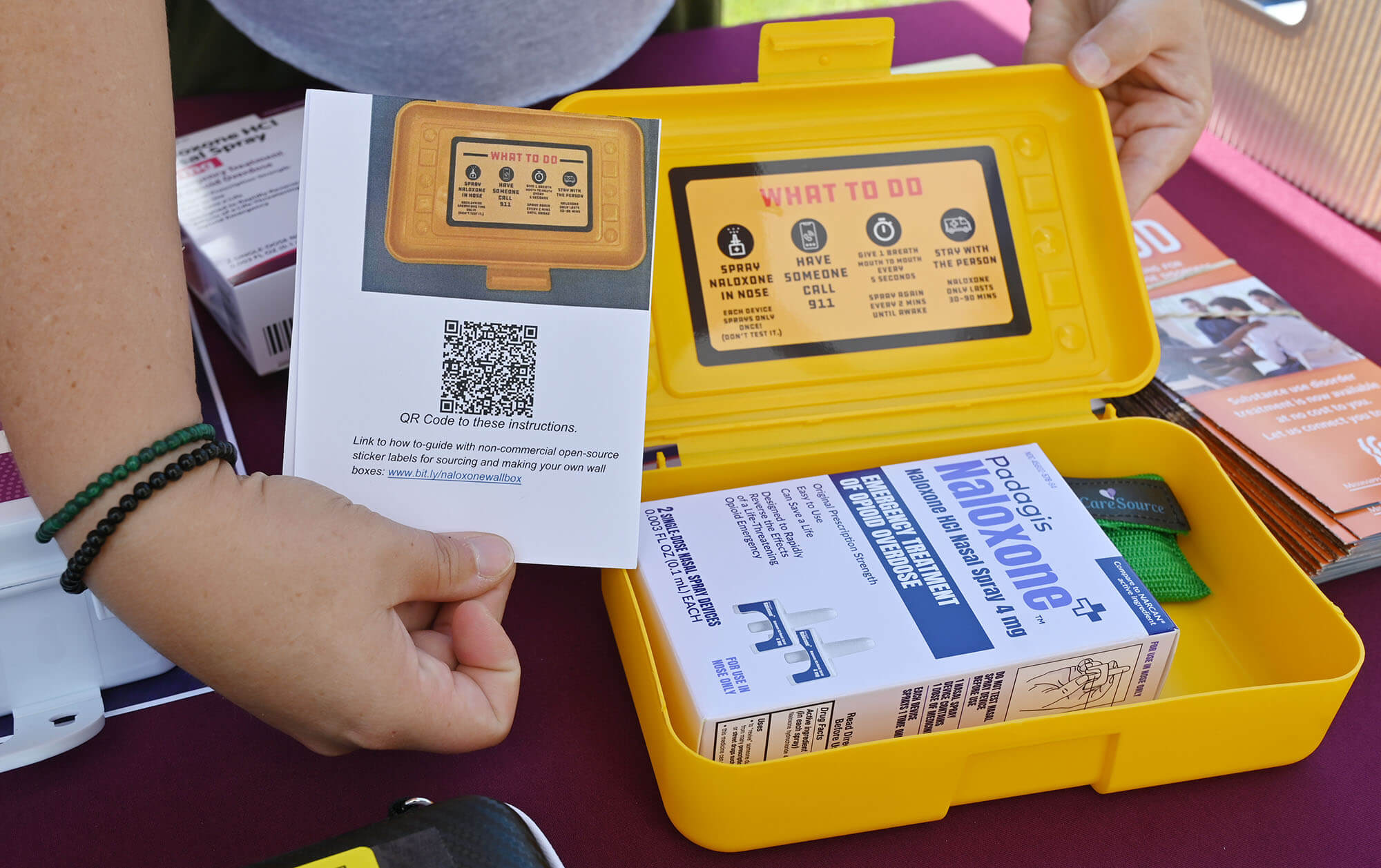
One volunteer was Glen Watt, who is in recovery and originally from Crystal Springs. He offered to help because he wanted to give back to the community.
“It’s an ongoing epidemic. It’s not just something you sweep under the rug,” he said.
From his experience, many people in Mississippi don’t know about naloxone. He said he used to be in that group. Watt said someone in his family still struggles with addiction, and he hoped to take some naloxone to them.
In Rankin County, Pearl resident Emilee Shell planned to distribute naloxone, drug test strips and more.
Shell is the Save a Life Day county organizer for Rankin County, programs director for Mississippi Impact Coalition and director of Grace House. She is in long-term recovery. She used to work at a treatment center and said she has lost several loved ones to overdoses.
Though she was not participating on behalf of the Mississippi Impact Coalition, she said Save a Life Day aligns with her organization’s mission.
“Oftentimes, our communities are left without support or resources. So carrying naloxone and offering harm reduction, it’s not just public health,” she said. “We believe it’s public love.”
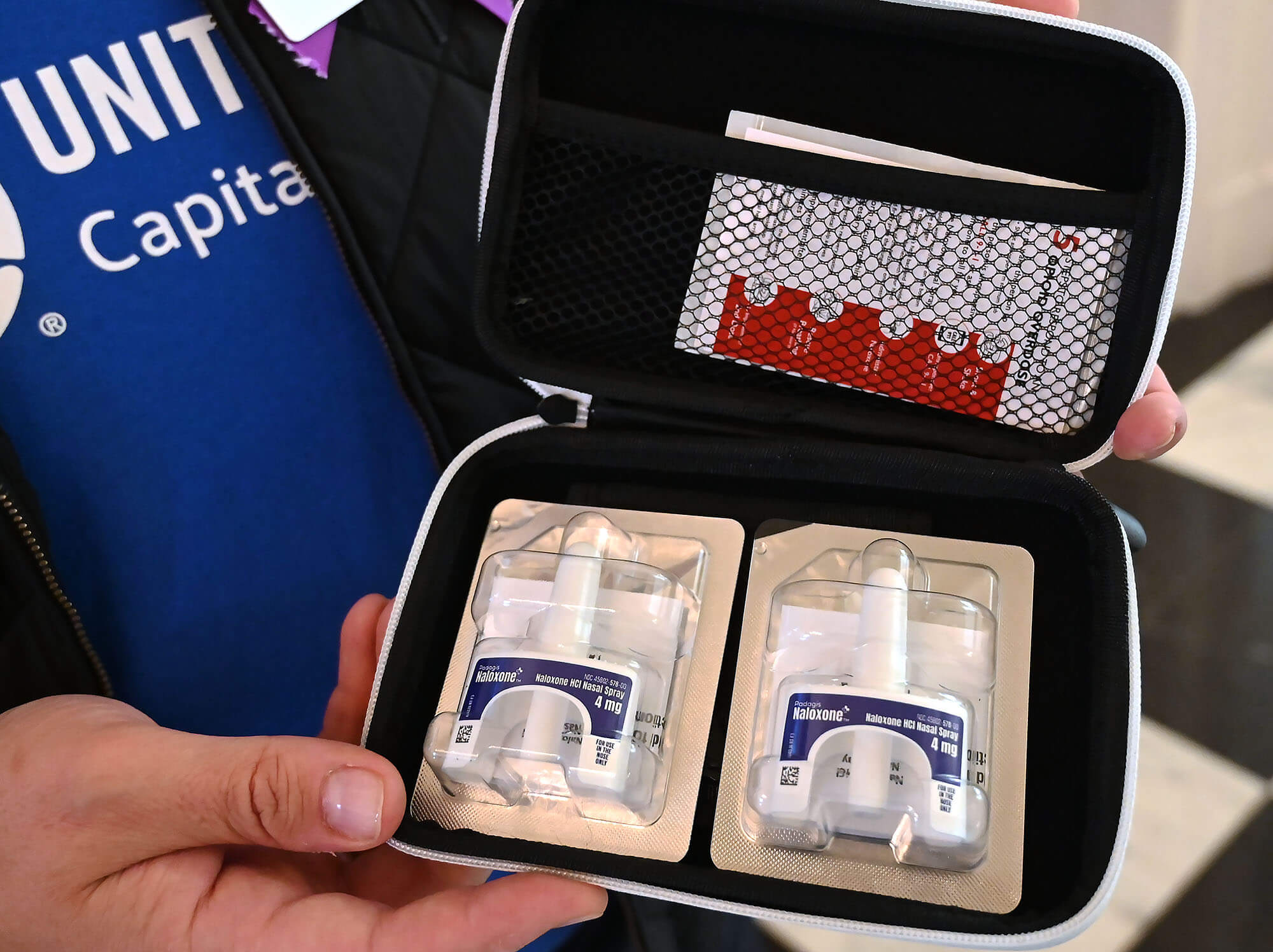
Originating in West Virginia, Save a Life Day is a national effort created by community organization SOAR WV. In Mississippi, an estimated 30 volunteers across 10 counties intended to distribute at least 500 kits.
Jason McCarty is the other county organizer for Hinds County, as well as a state co-coordinator with Denson. McCarty is the program development strategist for United Way of the Capital Area and for years has been advocating for those impacted by the opioid crisis. He said he sees naloxone as a tool for saving lives and helping people recover from addiction.
“We cannot get people into treatment and into a recovery life if they are dead,” he said.
Distributing naloxone kits is a popular form of harm reduction, a set of strategies and practices aimed at reducing harm to those who abuse drugs. It does not treat drug addiction as a moral failing and seeks to reduce stigma, increase education, save lives and support communities.
Naloxone, or narcan, temporarily reverses an opioid overdose. The drug wears off after 30 to 90 minutes, so someone who receives a dose needs to be monitored and get immediate medical attention. It is harmless to people who aren’t on opioids.
The Mississippi State Department of Health’s website has more information on how to help someone who is overdosing and how to order naloxone.
In 2024, 68% of all suspected overdose deaths in Mississippi were opioid-related. That was down from about 77% in 2023. More than 4,600 non-fatal overdoses have occurred in Mississippi in the first six months of 2025, according to the state health department.
Emergency medical service members across Mississippi administered naloxone 2,655 times in 2024. In Hinds County, it was 257, one of the highest numbers in the state. Rankin County had 113.
At Tuesday’s Jackson City Council meeting, Mayor John Horhn declared Thursday as Save a Life Day in the city. The council also voted to enter an agreement between the city and United Way of the Capital Area to place and maintain a “Leave Behind” narcan box inside the Warren Hood Building near City Hall. It won’t be paid for with the city’s opioid settlement money.
This proclamation came a day after Horhn said Jackson planned to use future opioid settlement funds for violence prevention. He said it was possible some of the money could go toward preventing drug deaths.
A Mississippi Today investigation found that Jackson spent $117,734 of the $546,664 it received on moving offices, installing fiber optic cables and a new shelving system.
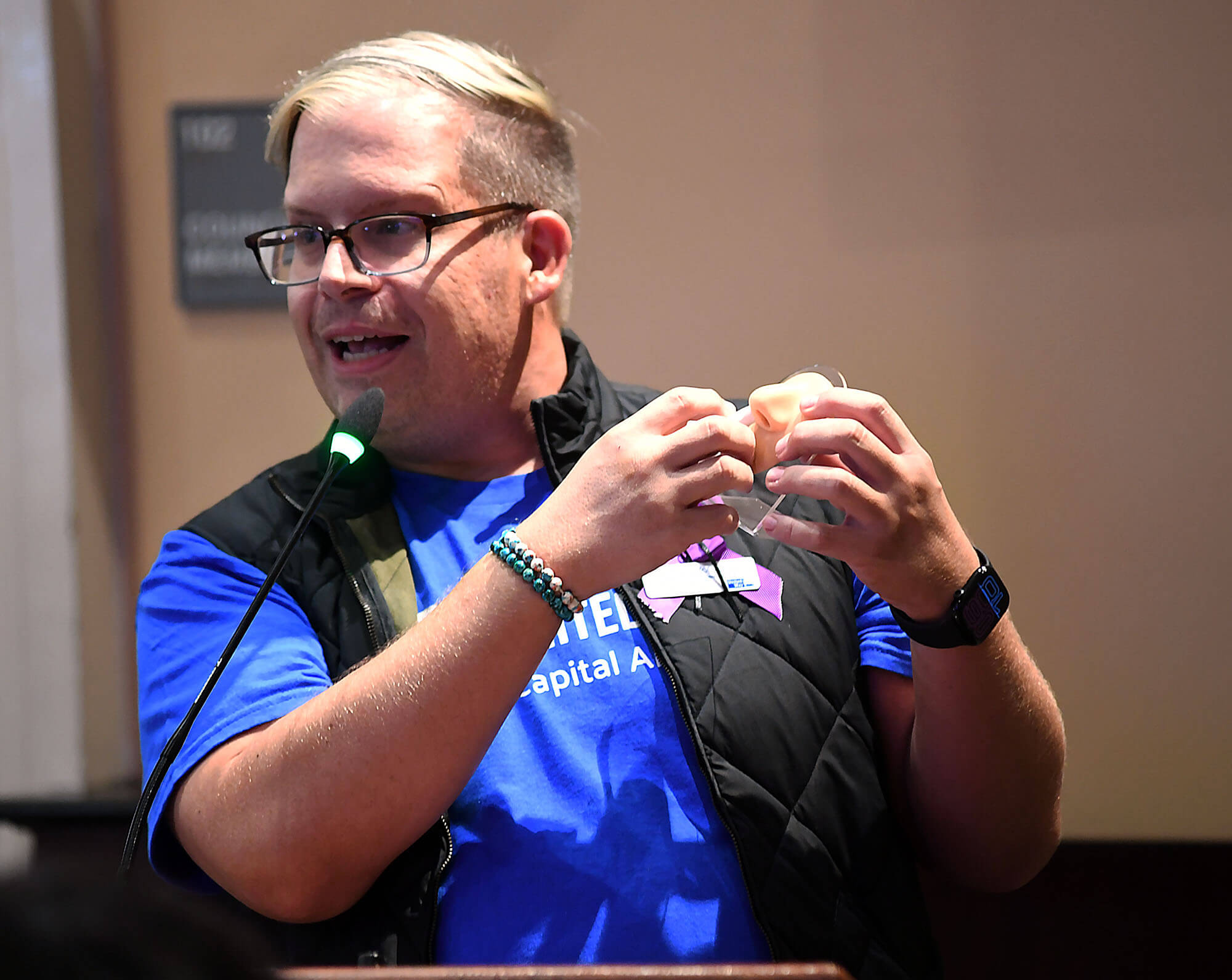
At the council meeting, McCarty thanked the mayor and council members for their help, but implored the city to spend opioid settlement funds on overdose prevention. He said 10,000 Mississippians have died because of opioids since 1999.
“This opioid settlement money was for them,” he told the council members. “Please, we need to spend this money on opioid prevention, and the United Way of the Capital Area is here to help you do that.”
Horhn did not directly address the settlement funds at that meeting, but did “urge all citizens to participate in activities that support overdose prevention, increase awareness and promote the use of naloxone to save lives.”
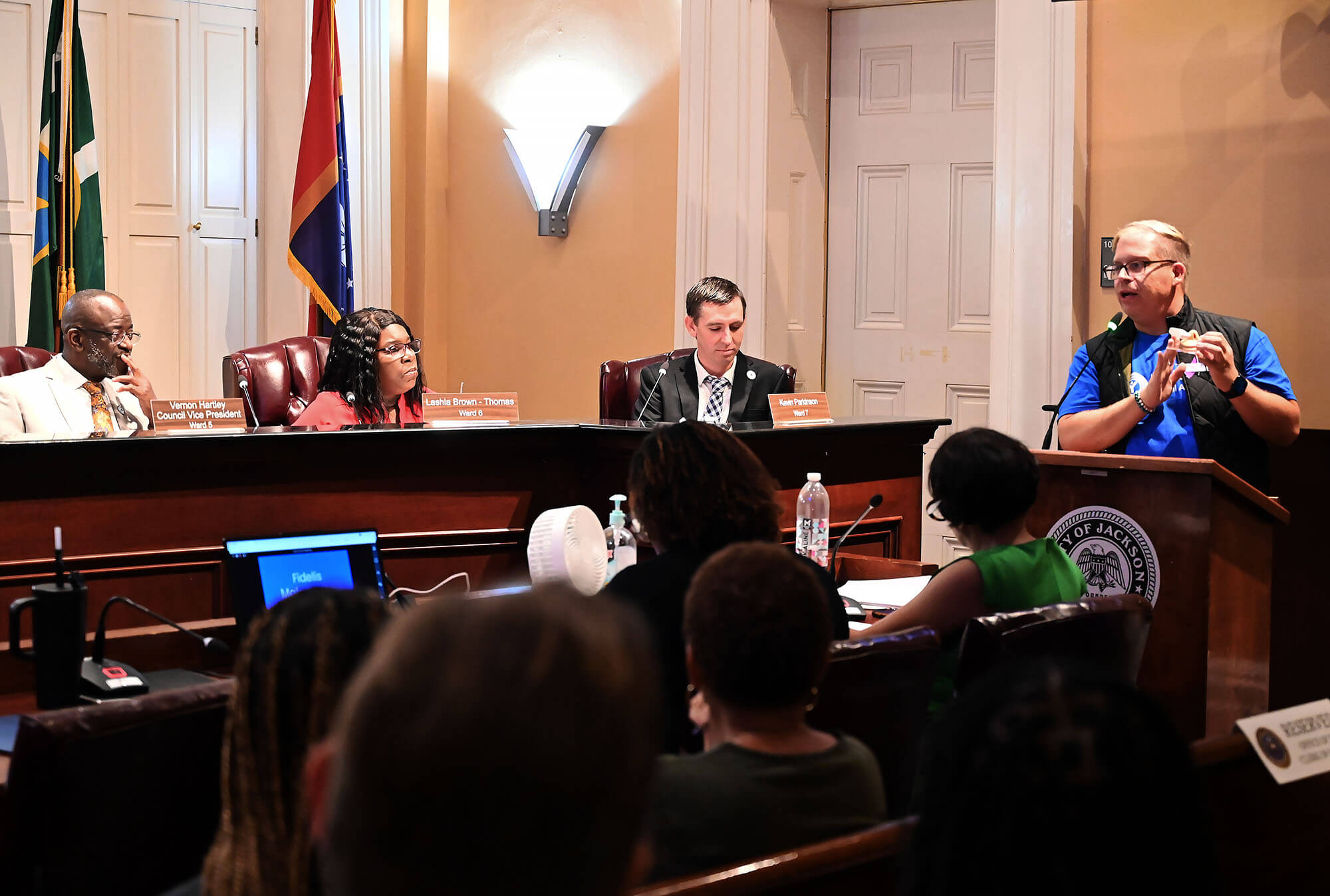
Save a Life Day volunteers also faced pushback from those who see distributing naloxone as enabling drug addiction.
Shell said an employee at Pearl City Hall who handles special event permits was “giving me a hard time.”
“She disclosed that she was not a fan of the idea or narcan distribution. She questioned where I got the narcan and if it was legitimately from a pharmacy,” Shell said. “She acted as if I was trying to distribute drugs to the community and completely disregarded the fact that it is a harm reduction tool to actually save lives.”
Shell also said that when she called Pearl Police Chief Nick McLendon to ask about permits, he said that while he supported her efforts, the police department would not be partnering with her because he didn’t want the community to think they were supporting illegal drug use.
McCarty said he requested a meeting with Pearl’s mayor and police chief to do stigma education for the mayor’s staff.
Mississippi Today reached out to McLendon, the employee in question and the Pearl’s mayor’s office. Neither the employee nor the mayor’s office responded in time for publication.
The police chief confirmed his response.
“Our police department has it, our firemen have it. We use it to save lives, but at the same time I’m not going to go publicly encourage illicit drug use,” McLendon said. He said he did not know of any meeting that was requested with him and the mayor.
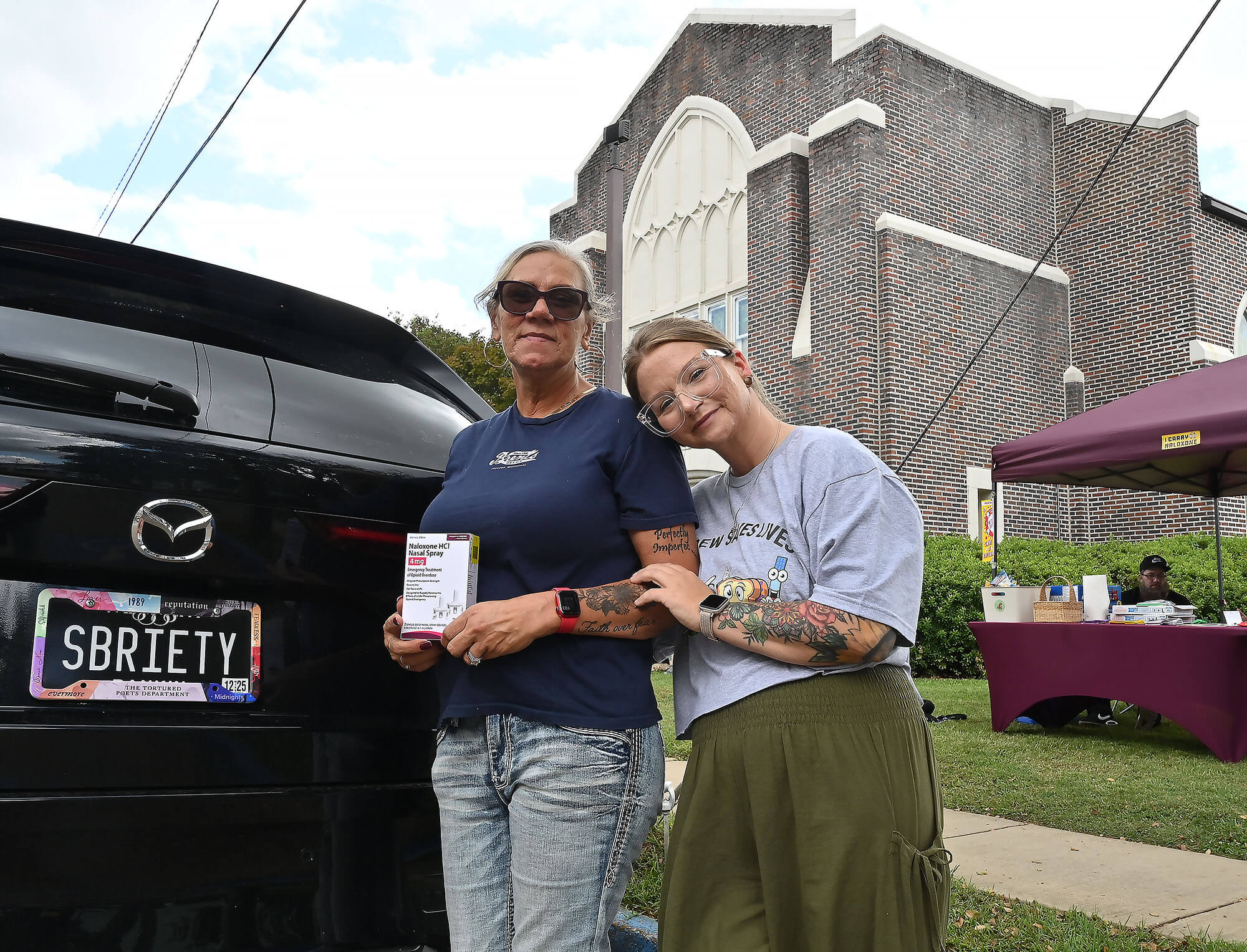
Denson said that she heard from other volunteers who got pushback from people in authority.
“I know that there have been a few times where we have tried to look for locations, not in Jackson specifically, but … just the feedback from them, saying a representative of their town is saying that they don’t want to draw that image to them,” Denson said.
Shell compared the stigma that comes with addiction to a grey cloud hanging overhead.
“Whether you’re in recovery or not, people only want to remember what you used to be and not what you’re trying to do today,” Shell said.
Despite the challenges, Denson said she is committed to helping others.
“I don’t fault anybody for not knowing it, but I think there’s a proper time and place for everything, and I’m just honored to be the one to be able to educate somebody or share my experience,” said Denson.
“I don’t want this to sound negative, but I think narcan should be like that change that is left in your cupholder,” she said. “You never know when you need it.”
- Former Greenwood police officer pleads guilty to federal drug trafficking charges - February 27, 2026
- UMMC officials say normal operations will resume Monday after cyberattack - February 27, 2026
- Hinds County public defender: Office needs additional funding to avert constitutional crisis - February 27, 2026